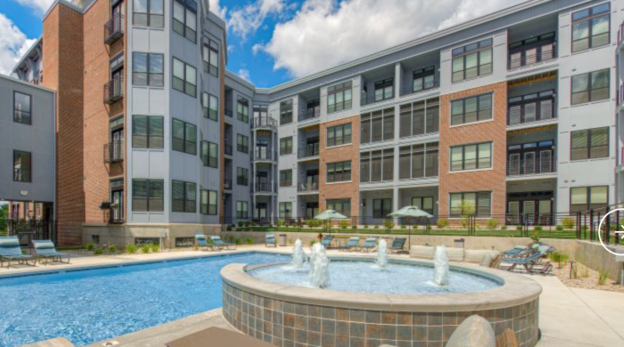Senior Associate Ryan Dumas is pleased to announce the refinance of a multi-family loan in Indiana.
Our clients, experienced multi-family owners, needed to refinance an existing loan. They were looking for stable financing at competitive prices.
Ryan worked hard with the clients, who were extremely motivated. Fortunately, the clients had also engaged a fantastic on-site manager. She worked closely with the GRP Capital team to provide up to the minute financials and rent rolls, so the loan could close as quickly as possible.
Our clients were extremely pleased with the process. As busy entreprenuers, they particularly liked how GRP Capital breaks down the lender checklists into bite-size to-do lists. The client told our loan processor, “Thank you so much for this email with a simple list”, remarking that other lists from previous lenders can be overwhelming at times. The team also shepherded the clients through the Environmental Site Assessment (which was not done for the original acquisition loan) as well as a necessary survey. As an added bonus, the clients were vacationing near our office during their scheduled closing date, so they were able to pop right in and sign their documents while we notarized. We loved meeting them and their adorable children.
Ryan Dumas stated, “I’m thrilled that we closed this loan for our clients. They are wonderful businesspeople. I’m particularly impressed with how they turned around this property. They own a lovely multi-family product with a very good reputation in a location that needed this type of housing. Our team worked very hard with them, and we hope to help them find more properties in the future.”
Looking for Multi-Family Financing?
• Get your paperwork ready. Lenders will request rent rolls, copies of leases and financials. Keep your files up to date and in good format (where the numbers from the various reports are congruent with each other.)
• Discuss options with our team: Many lenders want to finance multi-family projects. As a result, there are different types of loans that might be applicable for your project. We can explain the benefits of Fannie and Freddie backed loans, conventional loans, SBA Loans (for smaller properties) and even USDA loans for projects outside of metro areas.
• Keep up your occupancy: If you are seeking a refinance, lenders wants to see a healthy occupancy rate. If you are purchasing an underperforming property, the lenders need a strong, clear business plan to rehab and turn around the business.
Our GRP Capital team specializes in finding the right lender for each project. We save our clients time and money, as we research the best choices for their funding sources. Our experience allows our clients to find funding that is project-appropriate and will allow for sufficient cash flow. Whether you are looking to refinance or purchase, we would love to discuss your business plans with you. If you are considering becoming a first-time (or second or third time!) buyer, we can assist you.







 Get Started
Get Started